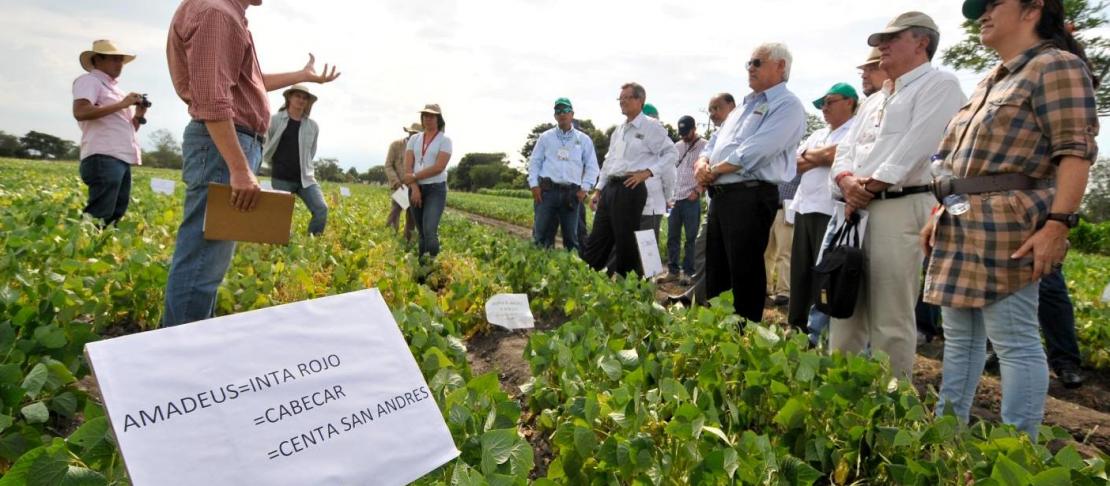Agricultural research for development - what are the next steps?

by Caity Peterson
“We want GCARD to become a real process, not just an event,” said Monty Jones of FARA-Ghana, in his role as chair of the Outcomes Session on the final day of the Global Conference on Agricultural Research for Development (GCARD2).
That means holding the participants and organizers - especially Global Forum on Agricultural Research (GFAR) and the CGIAR - of the conference accountable for the actions they propose to pursue between now and GCARD 2014. For posterity, then, a summary of the most important outcomes of the GCARD parallel sessions:
Actions and recommendations on the theme of FORESIGHT
- Place overarching emphasis on improved stakeholder engagement and diversity (including women and youth);
- Develop metrics for foresight impact;
- Outline a plan of action for sustainable production and consumption patterns;
- Solidify and coordinate global action with action at national and subnational level;
- Encourage opportunities for cross-regional learning;
- Support the foresight framework through the Global Foresight Hub.
Actions and recommendations on the theme of CAPACITY DEVELOPMENT
- Synthesize information on investment level and impact according to country and topic;
- Ensure follow up on north-south and south-south collective actions by increasing and monitoring investments;
- Develop enabling policy environments and effective documentation for institutional knowledge and learning;
- Collect statistics on the actual involvement of women and youth in agricultural research;
- Enhance the ease of access to agricultural information and data;
- Endorse the new extensionist concept, the GFRAS advocacy tool for timely advocacy, and relevant education and policy activities.
Actions and recommendations on the theme of PARTNERSHIPS
- Generate funding mechanisms that promote and reward, rather than constrain, partnerships;
- Collect evidence to pinpoint the most effective partnership and research initiatives;
- Use international and national partnerships to scale up innovation processes;
- Exploit existing alliances more effectively;
- Integrate the use of regional learning platforms for the co-generation of knowledge;
- Increase funding for market-oriented development and support farmers’ organizations in the resolution of challenges in value chains.
Said GFAR Executive Secretary Mark Holderness, “We’re creating real partnerships, not driven by money, but by the drive and need to work together to achieve zero hunger. Without that we’re letting down the people we serve.”
You’re right, Dr. Holderness. We’ll be keeping tabs.
Keep up with the happenings at GCARD2 on the GCARD2 social media platform.
Caity Peterson is a visiting researcher based at the International Center for Tropical Agriculture (CIAT) in Colombia, working on CCAFS Theme 1: Adaptation to Progressive Climate Change. To get more updates, follow us on Facebook, and Twitter @Cgiarclimate.